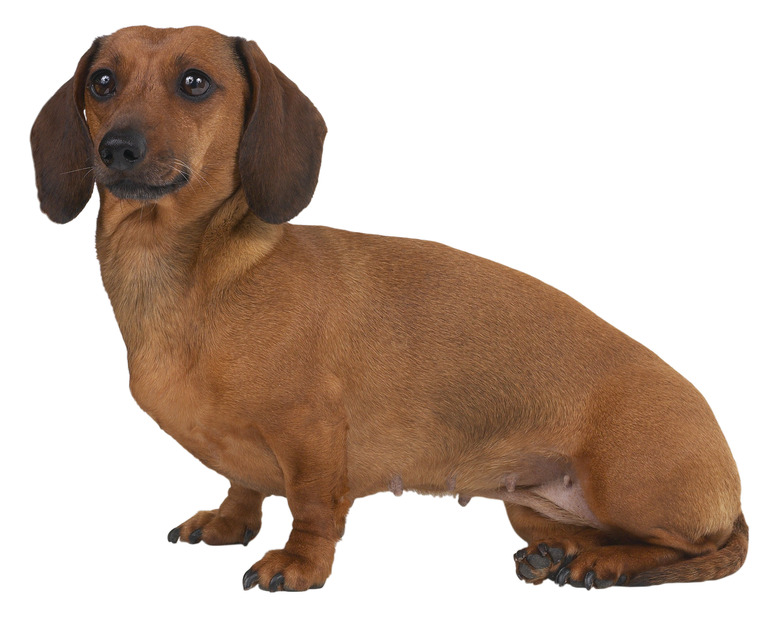Breeding Cycle Of A Miniature Dachshund
Breeding small dogs is a surprisingly complex task. The miniature dachshund is a very small dog that can experience several issues during the breeding cycle, including health issues during pregnancy and the necessity for a Cesarean birth to deliver the puppies. To maximize the changes of all going well during the typical breeding of a miniature dachshund, a prospective breeder should first have a solid grasp on each stage of the breeding cycle.
Heat Cycle
Heat Cycle
Female miniature dachshunds begin the heat cycle at six to eight months old and repeat it approximately every six months. The heat cycle lasts 18 to 21 days, beginning with the proestrus phase. Proestrus lasts about nine days and can be identified from the slight swelling of the vulva and bloody discharge. Upon entering the estrus phase, the vulva swells even more and discharge decreases and turns lighter in color. After about four days, females enter diestrus, in which discharge becomes redder and the vulva returns to its normal size. The heat cycle is complete when discharge ceases, and the dog enters anestrus until her next heat cycle.
Breeding
Breeding
The female miniature dachshund is receptive to the male during the estrus phase of the heat cycle. To ensure full physical and social maturity, miniature dachshunds should not be bred until their second full heat cycle. Breeding during estrus often achieves conception. However, a female may be receptive to a male for two to three days after the end of estrus, when she is no longer fertile. Additionally, female dogs do not always conceive on the first try, so repeating breeding at the next heat cycle may be necessary.
Pregnancy
Pregnancy
The gestation period for miniature dachshunds lasts for 63 days on average, during which exercise and nutrition are vital to maintain the health of the mother and ensure the health of the growing puppies. Regular walks and a balanced, high-quality diet are important during this stage. Pregnant dachshunds should not be fed vitamin or mineral supplements in order to avoid a nutrition imbalance.
Whelping
Whelping
In the first stage of labor, the uterus begins to contract regularly and the cervix dilates. This stage lasts between two and 12 hours. The expulsion of watery fluid and stronger contractions signifies advancement to the second stage, in which the first puppy enters the pelvic canal. Puppies are born in this stage at an interval of 30 to 60 minutes. During resting periods between births, the mother clears the membrane from the newborn's nostrils and cleans its body. With their small birth canals, miniature dachshunds may require help to deliver their puppies. If contractions last longer than one hour or rest periods longer than four hours, the mother should be taken to the vet for a Cesarean section.
After Birth
After Birth
The final stage of labor involves expelling the placenta after each puppy's birth. Many dachshund mothers will eat the placenta, which provides protein and nutrients. The mother will also chew off the umbilical cord connecting each pup to her. Miniature dachshunds cannot become pregnant immediately after whelping. However, a dachshund mother may begin her heat cycle again as early as three months after giving birth to puppies, at which point the breeding cycle begins anew.
